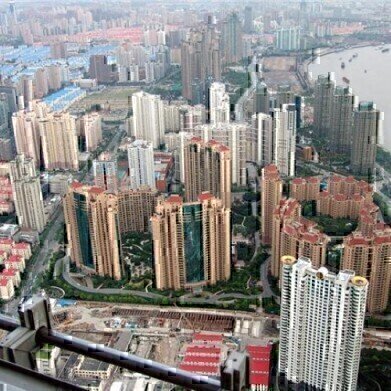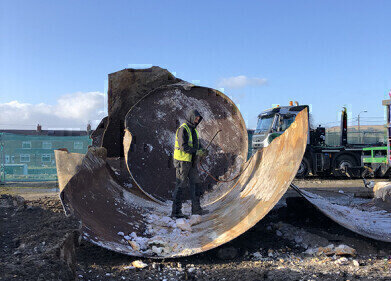Soil Remediation
Applying Science to Make Smells Sweeter and Composting Quicker
Jul 23 2008
eliminating odours using their advanced Mistral aeration system.
Advanced Mistral has been trialled at Stanton in Suffolk, where it is composting 45,000 tonnes per year of organic waste. The incoming organic waste is firstly treated to the EU ABPR standard in a series
of In Vessel composting tunnels constructed by Covered Systems Ltd (UK).
The resultant compost is then loaded into a series of open topped maturation bays where the aeration takes place. Blending and mixing these materials for treatment through IVC composting is crucial to create aerobic conditions within the composting mass and achieve the 70oC temperature requirement throughout the entire mass of compost
for 1 hour.
Mistral, (winner of the coveted Innovation in Composting Technology & Machinery Award from the Composting Association in 2006) is eliminating
the normal problems of using in ground or above ground compost aeration systems and significantly speeding up composting times.
Astoundingly by using advanced Mistral Country Mulch has been able to achieve useable compost (25mm compost used for soil improvement) from
maturation in just three weeks. “When we started aerating, during maturation†says John Jardine, Managing Director of County Mulch “we found that because the advanced Mistral system was drawing more air than ever before, the oxygen levels are unmatched, with concentrations of between 12 to 16% achieved in every bayâ€.
Air is forced through the compost via 160 mm pipes fitted to the top of each of the maturation bays.
Pumped at 6,000 cu m per minute, each bay receives 90,000 cubic metres of air during every 15 minute cycle, a computer controlled system works
24 hours a day, automatically changing bays every quarter of an hour.
The air is then sucked from the base of the bay through the exhaust system, to atmosphere via a biofilter. The aerated bays are filled before maturation and emptied three weeks later eliminating the need to turn windrows during maturation, significantly reducing odour problems.
The operating cost of the site has also been cut as no costly turning of the compost by machine is required during the maturation.
Once the compost is matured it is screened at the far end of the site as it is removed from the aerated bays and once screened will be regularly moved off site and stored and spread as an agricultural soil
conditioner. Any reject material from the screening will be added back into the composting process once it has been cleaned.
Events
IWA World Water Congress & Exhibition
Aug 11 2024 Toronto, Canada
Aug 25 2024 Stockholm, Sweden and online
Sep 03 2024 Mexico City, Mexico
Sep 03 2024 Mexico City, Mexico
Sep 03 2024 San Diego, CA, USA













